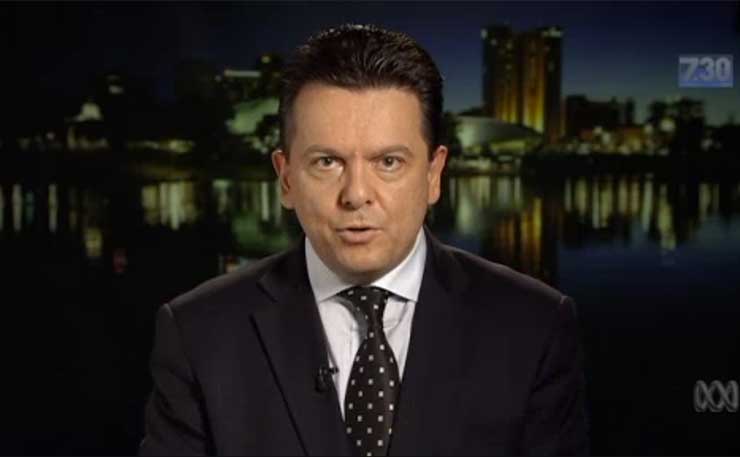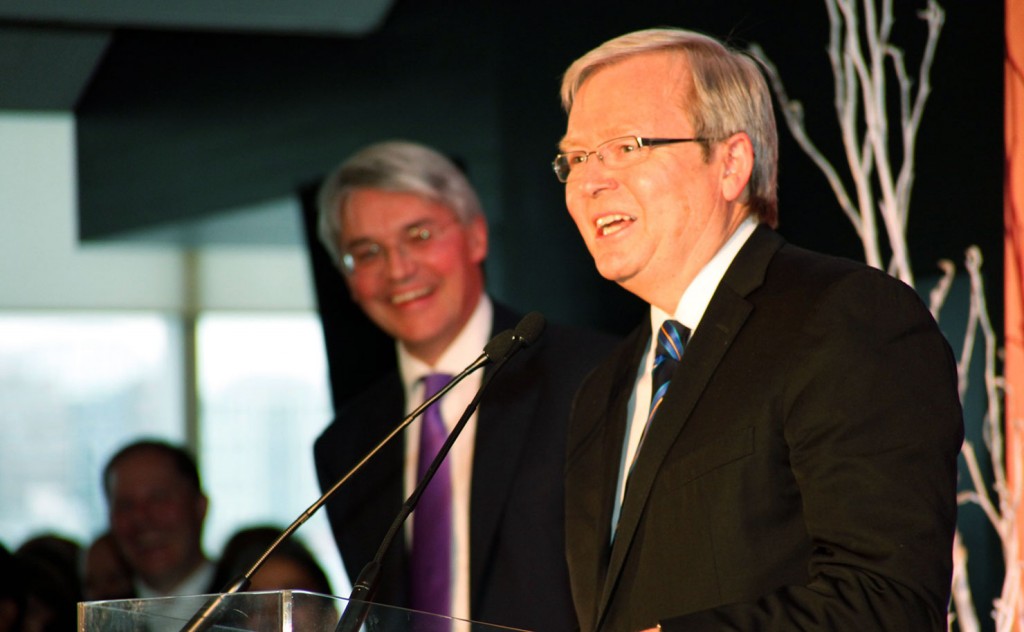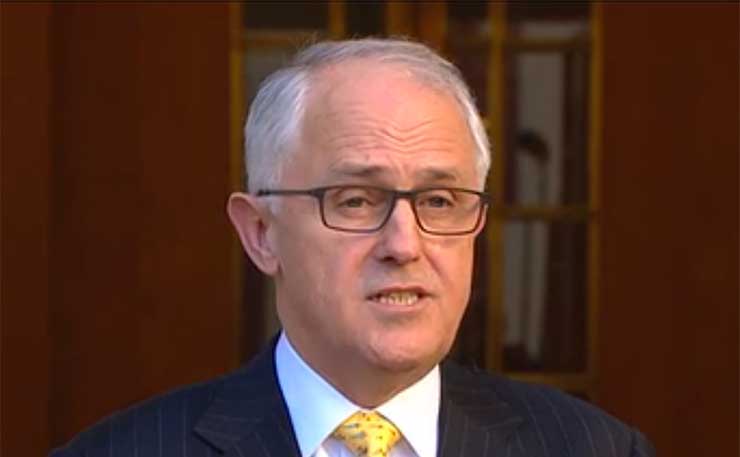Prime Ministers sometimes get it wrong, and some more than others. That should be the reason for their demise at an election, not their removal by a party obsessed with polls, writes Tom Haskell.
It’s three Newspolls to midnight on Turnbull’s leadership doomsday clock. The infamous “30 Newspolls in a row” reasoning for challenging Tony Abbott for the leadership of the Liberal Party, and thus the Prime Ministership, must be something that haunts Malcolm every day. Indeed, it should be something that haunts us all. Not because Turnbull is a great leader (he isn’t) or because the alternatives in the Liberal Party are any better (they aren’t), but because losing another Prime Minister to opinion polling does nothing but affirm a worrying trend of pub-test populism in Australian politics.
If not through an electoral loss, our leaders should be ousted for fundamental failures of leadership to those they lead and represent. It should be because they have failed the Australian people to a critical extent that they be relieved of their duties.
Sometimes governments and, indeed, leaders make unpopular decisions; sometimes they need to do so for the good of the Australian people. Licking your finger and testing the winds of your constituency is not a suitable way to lead, and thankfully the voters in South Australia realised this with their fierce rejection of the populist Nick Xenophon.

However, as an example of opinion polling leading poor policy outcomes, the newly elected Liberal government in South Australia is set to deregulate shop trading hours. According to opinion polling, 75% of South Australians support this.
Interestingly, small businesses in Adelaide are fearing having to close shop if these changes come through due to being unable to compete with the supermarket giants that can stay open indefinitely. It of course sounds like a common-sense initiative to keep the shops open for longer, it would mean shops could earn more money and employ more workers due to flexible trading hours, right?
Unfortunately not, the effects will be devastating for workers and small-business owners. Businesses unable to compete in a deregulated market will have to shut up shop, workers will lose their jobs and those who don’t will work unsociable hours without penalty rates on the odd chance that someone wants to buy a banana at 1am. But I guess I’m forgetting that 75% of South Australians reckon it’s a good idea.
Justifying poor policy like this based on opinion polling is a disservice not only to those opposing it and know they will suffer from it, but more so to those who blindly support it because it intuitively makes sense to them, and will also suffer from it. Societies don’t progress on intuition, and stable government isn’t nurtured by a deadline of approval ratings.
Opinion polling is, of course, extremely important. The public being able to communicate their satisfaction or dissatisfaction towards a major party’s collective policy platform is really one of the only ways other than voting that the general public can collectively hold our decision-makers to account. The pub-test is also a useful gauge of public opinion, but again, making policy purely on the ‘general vibe’ of the public conscience is a disastrous way to lead.
In saying all this, it is important to consider why leaders like Rudd or Abbott were ousted in the first place.
For Rudd, it was his suffocating micromanagement and his arrogance in trying to do everything himself. For Abbott, it was the toxic and dysfunctional work environment created by his Chief of Staff, Peta Credlin, who shut off even cabinet ministers from the Prime Minister.

But the opinion polls alone didn’t even come to close to justifying knifing these leaders in the back. In Turnbull’s case, I understand that he couldn’t have just come out and said “our government is broken, the Prime Minister’s Chief of Staff is holding us all to ransom”, but an opinion poll justification is probably what will end up breaking our leadership system.
The precedent that would be set from Turnbull’s downfall before an election would be more devastating than the precedent set by Rudd’s downfall in 2010.
Because it’s not Malcolm that’s losing these polls, it’s Liberal Party policy that is doing it. It doesn’t matter who takes over as leader if Turnbull is forced into a leadership spill, the damage is already done.
Malcolm should lose the next election because of his inability to stare down the right-wing of the Liberal Party and push an agenda that he could have really signed his name to, however he shouldn’t lose the Prime Ministership just because the ‘general vibe’ is against him.
The Australian Labor Party does of course now have rules standing in the way of just randomly calling leadership spills and quickly flipping leaders of the party, but these rules don’t solve the core issue that lies in this populist paradigm of leadership. As I said earlier, leaders should be removed for fundamental failures to the Australian people, and rules like the ALP’s only address the problem without really solving it.
Losing Turnbull as Prime Minister before he can be voted out by the Australian people at an election would be a devastating blow to stability in leadership. Let’s leave the pub-test and opinion polling as a guiding tool for our politicians, and not as the mandate by which we allow them to lead.
Donate To New Matilda
New Matilda is a small, independent media outlet. We survive through reader contributions, and never losing a lawsuit. If you got something from this article, giving something back helps us to continue speaking truth to power. Every little bit counts.




